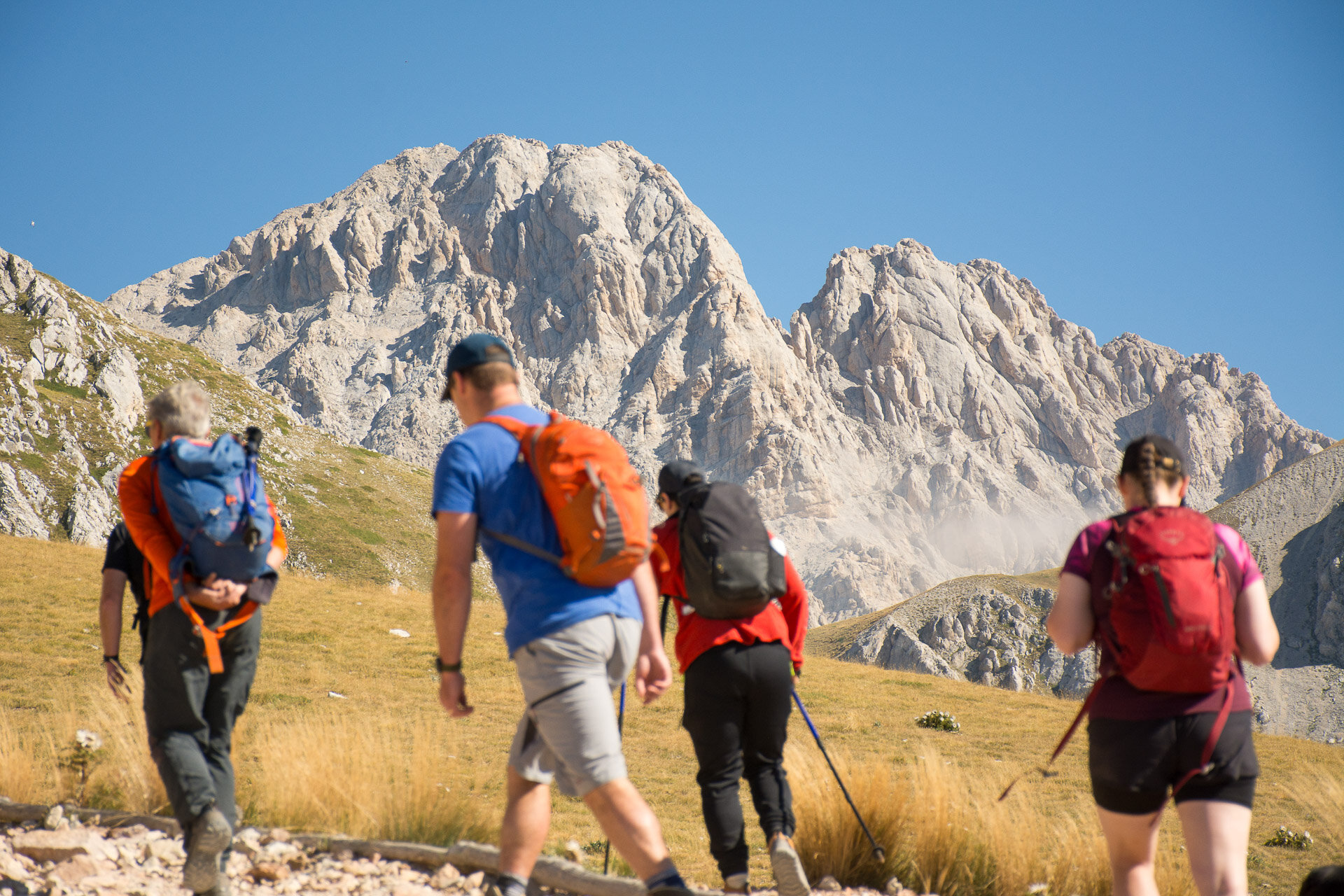Find your adventure in Abruzzo
From easy hikes and high-altitude treks to snowshoeing, sunrise or sunset wildlife watching, multi-day traverses and patient wildlife observation, there's something for everyone. Not sure what to choose? Here you’ll find all the information you need to discover your perfect adventure! We offer a wide variety of guided experiences year-round, enabling you to finally embark on the adventure you’ve always dreamed of, all while respecting nature. The Central Apennines are a paradise for biodiversity lovers and those seeking an authentic connection with nature and local cultures. Get ready to explore!
Skip the filters and see the results
${filterGroup.title}$
${filterGroup.title}$
No experiences found, see other available experiences or change the filters you have set.
Sorry, there are no results available for this search. remove filters or view random results
